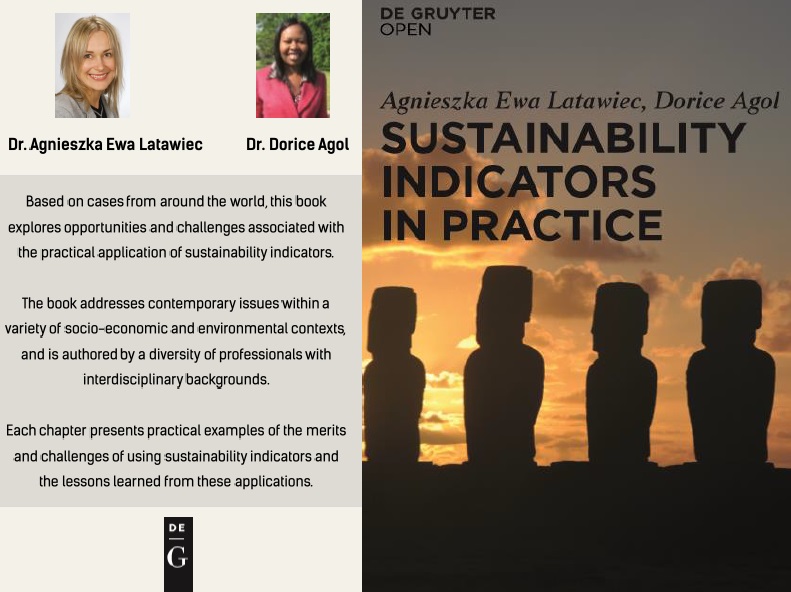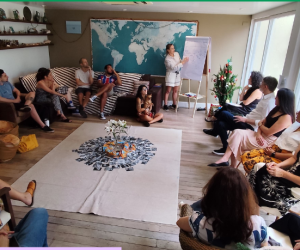News > News
09.03.16
Brazilian and foreigner scientists launches a book debating sustainability indicators efficiency on March the 10th in Rio de Janeiro
To debate the subject of sustainability indicators, ten case studies about practical use of sustainability indicators from Brazil and around the world were reported in the book Sustainability indicators in practice, that was launched on March the 10th, in Argumento book store, at Leblon (Rio de Janeiro – RJ) by Agnieszka Latawiec, the book editor. Together with the co-editor of the book, a scientist Dorice Agol she invited a group of more than 20 Brazilian and foreigners researchers to write the book. The book is available for download for free from the DeGruyter Open website. http://www.degruyter.com/view/product/465479
The case studies show the importance of using properly sustainability indicators, which in practice, does not happen very often. According to Agnieszka, the indicators may be used inappropriately, even when indicator is considered a good one. “Indicators are always subject to controversy, subjectivity and user preference. However, as shown in the book, there are indicators that, based on expert opinion, approach sustainability questions in a more or less comprehensive manner”, explains Agnieszka who is cofounder of the International Institute for Sustainability (IIS) in Rio, Post-Doctorate researcher from PUC-Rio and coordinator of the Conservation and Sustainability Science Center (CSRio) at PUC-Rio.
One interesting example of the use of indicators is in the context of reforestation. “What will be measured by sustainability indicators must depend of the objective defined before a certain intervention. For example, if the objective was ecological restoration, the extent of reforested area may not be sufficient to indicate the restoration success. Instead, diversity of planted species and its survival during a certain time must be taken in consideration”, says Agnieszka. The book chapter lead by Dr. Jerônimo Boelsums, professor at UFRRJ and associate researcher at IIS, reports a case study, which well approaches this topic.
Another example is associated with social indicators: “The creation of job positions is often mentioned as a good indicator but from the sustainability point of view, an indicator that should complement the assessment is the capacity building because it reflects the effects that go beyond the duration of job position. This should be considered, for example, when analyzing impacts (sustainable or not) of the Olympics”. Agnieszka adds that in several occasions the researcher may be pressed, mostly by financers, to show an immediate result of a project that may take years to demonstrate the real effects from the sustainability point of view.







